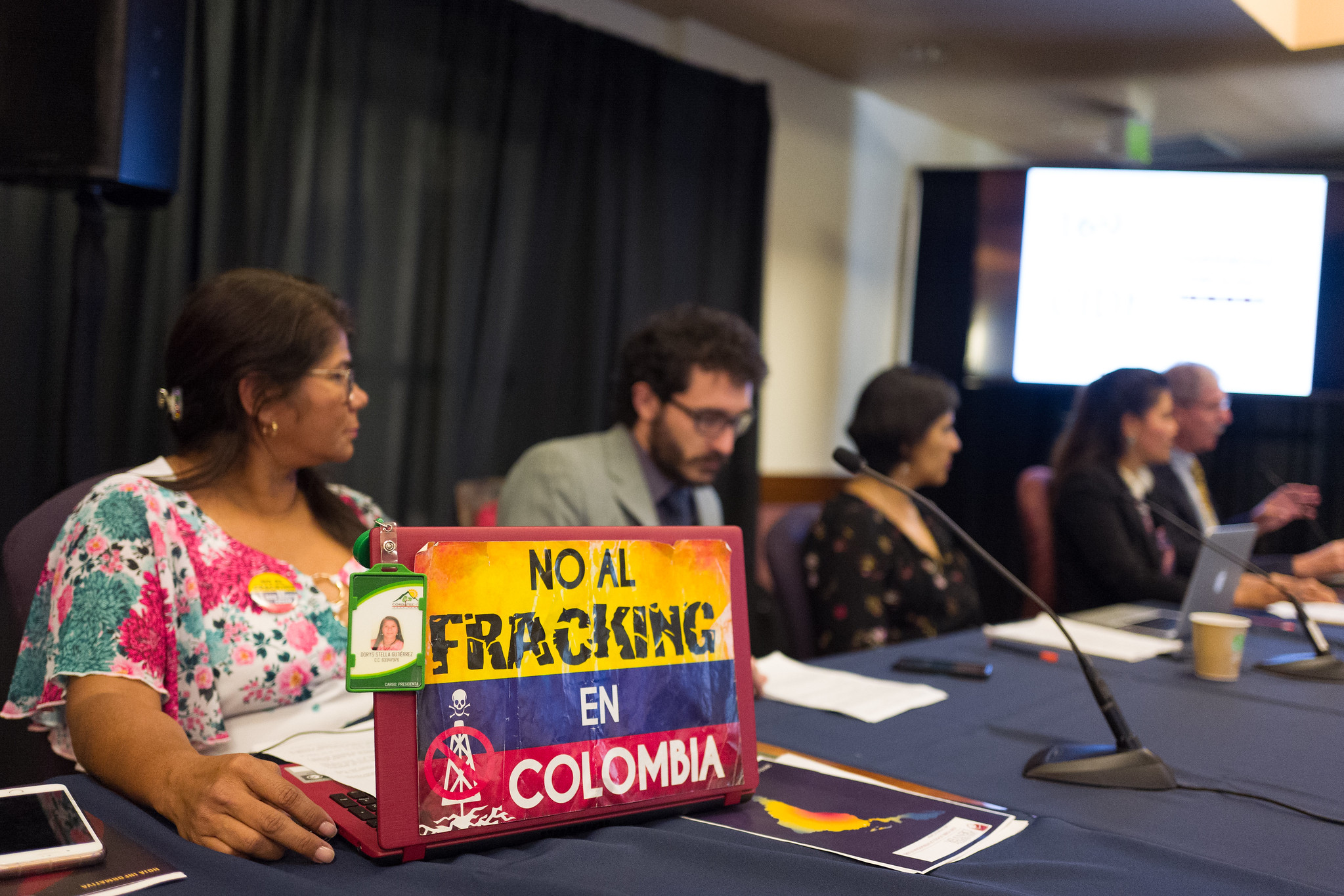The Alliance for a Colombia Free of Fracking alerted the Inter-American Commission on Human Rights that the Colombian government is moving forward with pilot fracking projects in the midst of the pandemic, thus denying citizens access to information and justice.
Although the process in which the State Council declared the judicial moratorium on fracking is suspended due to the pandemic, the high court had established that the implementation of pilot projects is conditioned to their being of a scientific nature and having robust institutions, social license, and technology of minimum impact.
The government, however, "has systematically mocked these demands," the Alliance denounced.
In an effort to advance fracking, and defiance of the moratorium, the government: published its first decree on the pilot projects during the Christmas season, discouraging citizen participation and public debate; tried to placate environmental claims and deceive its people by signing the Escazú Agreement, with no intention of ratification (without which the agreement is non-binding); issued a second decree in which it continues to ignore the demands of the Council of State; continued to regulate this decree in the midst of the pandemic, with the courts closed and without public access to information, participation and justice; and continues to develop new norms for the advancement of fracking in Colombia.
"It will only be possible to get out of this crisis with a vital turn towards other forms of energy production and use that are totally based on the democratic principles of our Constitution and the statements of the Commission," the Alliance said in a public statement upon submitting the alert.

